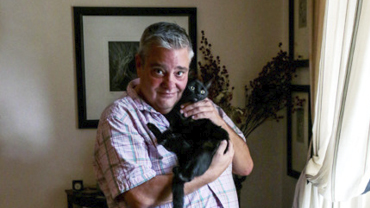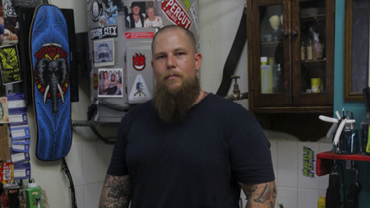
Thanksgiving is about being grateful for your family, friends and the blessings in your life. When you get home, you may not be too thankful that your family doesn’t know why you now have a moustache. No need to get discouraged – now’s the time to use your moustache to start a conversation about men’s health.
Make sure they understand what Movember is all about. The Movember Foundation is the leading global organization committed to changing the face of men’s health. The Movember community has raised over $559 million to date and funded over 800 men’s health programs in 21 countries. Since 2003, when Movember began in Australia, over 4 million moustaches have been grown worldwide.
We know talking about health with your family can be a little hairy, so we’re here to help. Read up on the important stats and health risks that men are facing.
- The average life expectancy for men in the United States is almost five years less than women.
- Prostate cancer is the second most common cancer in men in the United States. Skin cancer is the most common.
- 1 in 7 men will be diagnosed with prostate cancer in their lifetime.
- A man with a father or brother who developed prostate cancer before 60 is twice as likely to also develop prostate cancer.
- Testicular cancer is the most common cancer in young men aged 15-35 years.
- Around 15 million American adults (6.7% of the population) are diagnosed with depression each year.
- More than four times as many men than women die by suicide in the United States.
- Physical activity can reduce your risk of heart disease, diabetes and cancer by up to 50% and lower your risk of early death by up to 30%.
- Making a MOVE can improve your general well-being and mental wellness; not to mention, it can combat fatigue, aches and pains, anxiety and depression.
When everyone is together during the holidays, it’s the perfect time to talk about the health history of your family. You can’t change your genetics, but you can make healthy choices to limit their effects. Knowledge is power.










